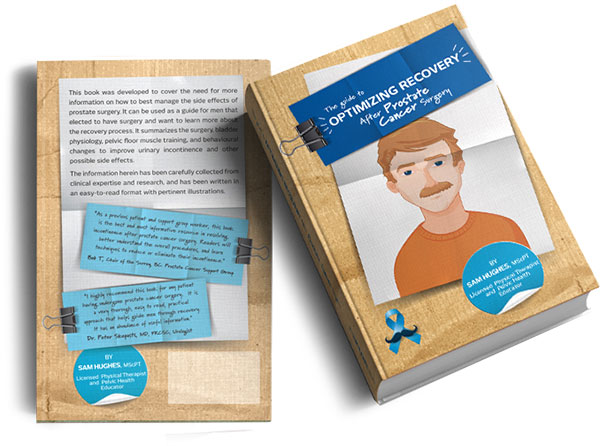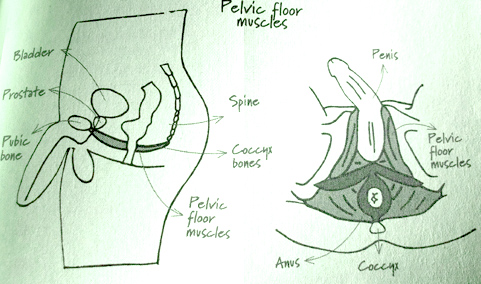
|
Men have a pelvis too, and although not as common as women, they may present with pelvic pain, sexual and bladder symptoms. |
With over 15 years of experience in men’s health physiotherapy, Samantha provides care to men of all ages experiencing pelvic-related concerns, including:
-
Pre and Post-Prostate Cancer Surgery
-
Bladder Leakages (Urinary Incontinence)
-
Pelvic, Hip, or Low Back Pain
-
Chronic Prostatitis or Chronic Pelvic Pain Syndromes
-
Scrotal or Penile Pain
-
Erectile Dysfunction (difficulty maintaining erections)
-
Urgency and Frequency (Bowel or Bladder)
-
Post-Prostate Cancer Urinary Incontinence
Urinary incontinence and erectile dysfunction are common—yet treatable—side effects after prostate cancer surgery. While many men experience gradual improvement, a small percentage continue to struggle, which can deeply impact quality of life.
One of the primary causes of male urinary incontinence is prostate cancer surgery. During this procedure, the internal sphincter—which involuntarily controls urine leakage—may be damaged or partially removed. As a result, men typically lose some degree of urine control after surgery and may continue experiencing leakage during recovery. The recovery timeline varies for each individual, typically ranging from 6 weeks to 1 year.
Samantha has been treating men with post-prostatectomy incontinence for over a decade. In her clinical experience, many men tend to overdo pelvic floor exercises (Kegels), which may not always lead to better outcomes. Her approach includes thorough education, personalized guidance, and behavior coaching to help optimize bladder recovery and support men in regaining continence as soon as possible.
While pelvic floor muscle training can be a powerful tool, recovery often requires more than just exercise. Addressing the underlying root causes—whether physical, emotional, or psychological—is essential. Without that, even the best exercises may fall short.
"The most important part of treatment is connecting with each client, understanding their struggles, and offering my full support and expertise."
To learn more about recovery after surgery and how to support your bladder health, click below to order her book:
“The Guide to Optimizing Recovery after Prostate Cancer Surgery.”


